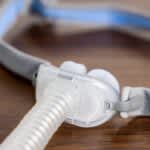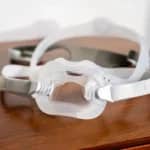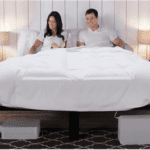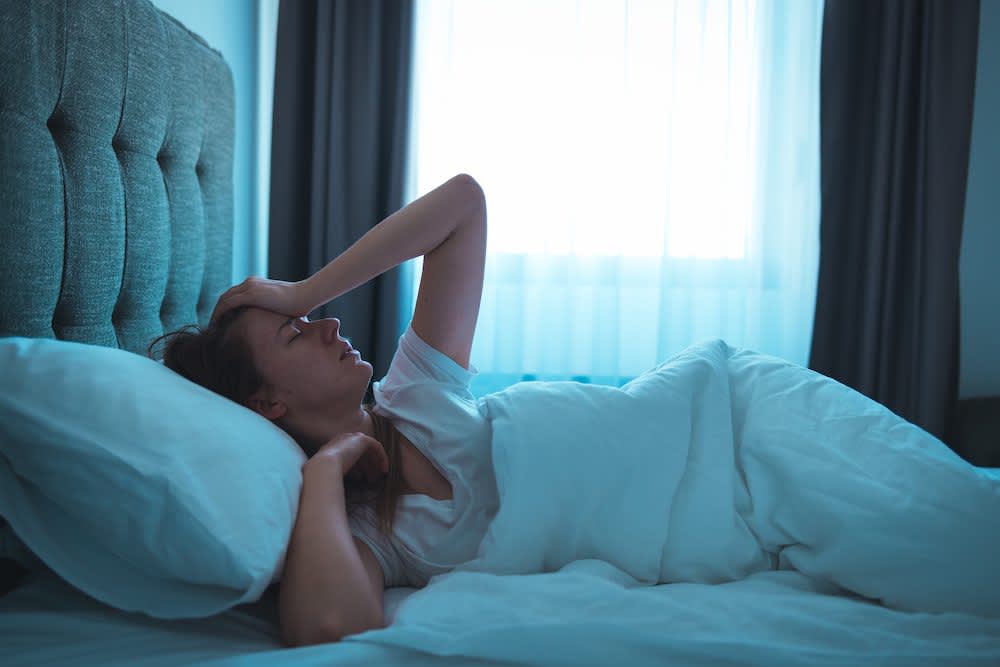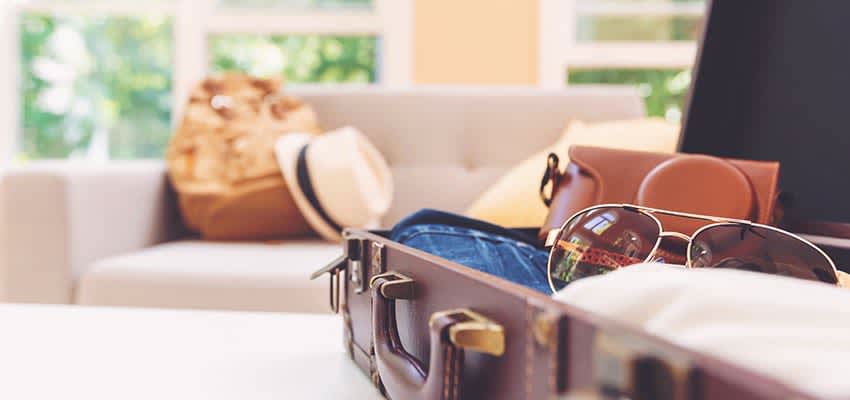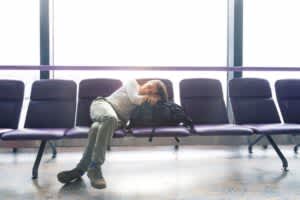Although everyone wants to make the most of a vacation or business trip, jet lag often makes grogginess a reality after long-distance travel. When introduced to a new time zone, travelers frequently struggle to get quality sleep and feel refreshed throughout the day. We cover why jet lag happens, tips for treating symptoms, and how to prepare for an upcoming trip.
Top 5 Tips for Jet Lag

- 1 Seek bright light in the morning to help shift your circadian rhythm.
- 2 Stop drinking caffeine several hours before bed to reduce its effects.
- 3 Short naps that are under 30 minutes can help you during the day.
- 4 Shift your sleep schedule in the days leading up to your trip.
- 5 Melatonin supplements can help you adjust to a new sleep schedule in different timezones.
If possible, don’t schedule any important events on the first day of your trip. Give yourself time to get used to your new timezone.
What is Jet Lag?
Jet lag is a temporary sleep disorder caused by a disconnect between the time of day at your travel destination and your body’s circadian rhythms. This mismatch occurs when quickly traveling across multiple time zones, especially with long-distance flights.
Circadian rhythms are processes in your body that synchronize to the 24-hour day based on cues like light and dark. These daily cycles help you feel sleepy at night and alert during the day.
Rapidly traveling to a new time zone lengthens or shortens your travel day, depending on the direction of travel. This change can throw off your daily schedule, including the timing of sleep, because nighttime comes earlier or later than your body is expecting.
Symptoms of Jet Lag
Once you arrive at your destination, jet lag can make you feel sleepy during the day or wide awake in the middle of the night. This happens because your circadian rhythms have not yet adjusted to the timing of day and night in your new location.
Until your circadian rhythms adapt to the new time zone, jet lag can lead to a range of symptoms, including:
- Difficulty falling asleep or staying asleep
- Feeling sleepy during the day
- Digestive problems such as reduced appetite, upset stomach, and constipation
- Emotional issues like irritability and poor mood
- Difficulty focusing and making decisions
- Generally feeling unwell
- Headache
- Muscle soreness
These symptoms can vary quite a bit from person to person as some individuals adjust to new time zones more easily than others.
Thankfully, symptoms of jet lag usually disappear as your body shifts its circadian rhythms to match the new time zone. In most cases, this takes about one day per time zone crossed, but several factors can prolong or speed up the process. For trips over very long distances, jet lag has the potential to cause symptoms for several weeks.
Why Do We Get Jet Lag?
You get jet lag when your circadian rhythms become misaligned with the day-night cycle of your surroundings. This means that the time on the clock is at odds with the time your body thinks it is, which happens because of rapid travel across time zones.
It takes time for circadian rhythms to adjust to the light and dark cycles of a new time zone. In order to fully adapt, your body generally needs one day for each hour of difference from your home time zone.
Several factors can influence whether and how badly you get jet lag.
- Distance of Travel: The farther the destination, the worse jet lag tends to be. Traveling across fewer than two time zones shouldn’t cause any problems.
- Direction of Travel: It’s often harder to adjust to time zone changes when traveling east versus traveling west.
- Timing of Travel: Eastward flights that arrive in the middle of the day tend to cause fewer jet lag symptoms than those that arrive at other times.
- Sleep Issues Before and During Travel: If you start your trip sleep deprived or struggle to sleep while in transit, it may worsen jet lag.
- Travel Habits and Conditions: Drinking caffeine or alcohol during your trip may impact jet lag symptoms, and travel conditions, such as poor air quality and cramped seats, may affect your ability to feel well after traveling.
- Light Exposure at Your Destination: The ability to be exposed to day-night cues like sunrise, morning light, and sunset can play a role in how quickly you can recalibrate your circadian rhythms.
- Age: Some research suggests that younger people are more susceptible to jet lag.
- Chronotype: Because your chronotype is closely related to your body’s circadian rhythm, it can influence how you adapt to changes in time zones.
Individual differences can account for why one person is affected by jet lag and another isn’t. As with many disorders, some people are simply more prone to jet lag, but research has not identified demographic factors other than age to explain the variance in jet lag symptoms.

How to Get Over Jet Lag
Your body will naturally adapt to its new time zone eventually, but several strategies can help to treat jet lag. Light exposure and melatonin can help speed up the shift of your circadian rhythms, while other treatments focus on relieving your symptoms in the moment.
Light Exposure
Bright light is the most important environmental cue that helps your body shift its circadian rhythms to match a new time zone. Natural light exposure signals to your body that it’s daytime, so upon arrival at your destination, spend time in the sun or near sunny windows. While direct, outdoor light is ideal, you can also use a strong artificial light like a light therapy lamp.
Depending on the direction you traveled, light exposure may be more important at certain times of day. If you traveled east, seek bright light in the morning and early afternoon to shift your circadian rhythms forward. If you traveled west, evening light is usually most important, so keep the lights on until bedtime to shift your circadian rhythms later.
Melatonin and Sleeping Pills
Circadian rhythms control the body’s production of melatonin, a hormone that induces sleepiness at night. Eastward travelers can take melatonin supplements at bedtime to help sync their circadian rhythms with the new time zone. Taking melatonin may also make it easier to fall asleep at an appropriate time after eastward travel.
Westward travelers shouldn’t need melatonin unless they’ve crossed more than 12 time zones.
Melatonin supplements aren’t regulated by the FDA, but melatonin is generally considered safe to use for treating jet lag. Purchasing melatonin from reputable supplement suppliers can help ensure a quality product that matches the dosage listed on the label.
Sleeping pills are another option to fall asleep more easily. Unlike melatonin, these medications don’t speed up the adjustment of circadian rhythms. Sleeping pills frequently have side effects like next day drowsiness, so caution is recommended when taking them, especially when planning to drive.
Morning Caffeine
Drinking coffee in the morning is generally a safe way to keep yourself alert during the day. However, caffeine has a tendency to disrupt sleep if you consume it too late in the day. Experts recommend stopping caffeine consumption for at least eight hours before bedtime.
Short Naps
If you’re feeling sleepy during the day, you may be tempted to take a nap. Napping is fine as long as you do it at least eight hours before your bedtime and keep the nap to a half an hour or less. If you nap too much or too late, you’re more likely to have trouble sleeping at night.
How to Prevent Jet Lag
While you may not be able to avoid jet lag entirely, you can minimize its impact by planning ahead. If you have an upcoming plane trip that will cross two or more time zones and last for three or more days, try these strategies to try to prevent jet lag or at least reduce its effects.
Shift Your Sleep Schedule Before the Trip
In the days leading up to your trip, you can gradually adjust the times you wake up and go to bed to more closely match the time zone of your destination. If you’re traveling east, start going to bed and waking up earlier. If you’re traveling west, start going to bed and waking up later.
Your circadian rhythms respond to light, and to a lesser extent, food intake. Aligning your light exposure and meal times to your modified sleep schedule can help shift your circadian rhythms.
If traveling east, get light exposure earlier in the morning and eat earlier meals. Westward travelers can keep their lights on later and eat later than usual. A light therapy box can provide bright illumination when natural light exposure is not convenient.
Online tools and smartphone apps like Timeshifter can help you schedule these gradual pre-trip adjustments based on your specific travel plans.
Practice Healthy Habits
Getting enough sleep in the days leading up to your trip is important to limiting the impact of jet lag. Eating nutritious meals and exercising regularly will also help set your body up for success when it adjusts to a new location.
Plan Whether to Sleep on the Plane
If your flight takes place during nighttime at your destination, try to sleep on the plane. Consider bringing melatonin to take during the flight, which may help you sleep more easily. If your flight coincides with daytime at your destination, try to avoid sleeping on the plane.
Keep Your Arrival Day Flexible
Regardless of prior planning, you’re likely to experience some form of jet lag or fatigue from travel upon arrival in a distant time zone. If possible, don’t schedule any important meetings or events on the first day of the trip. Give yourself time to take it easy and get used to your new time zone.
References
The Sleep Doctor Forum: Real Experiences, Real Connections
Continue the discussion on the Sleep Doctor Forum. Connect with experts and fellow forum members on CPAP, sleep apnea, and all things sleep. A priceless resource that’s free to join.



